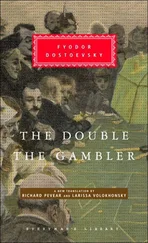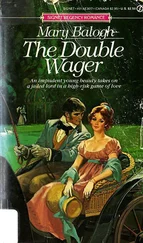“I’m sure he could have stayed with half the people in this church, if you’d known,” Laurel said. “He was…”
“Yes?”
She had started to tell her that he was schizophrenic, but at the last moment had reined herself in. Jordie didn’t need to know. “He was private,” she said simply.
Jordie seemed to think about this. Then: “Did he come straight to you?”
“You mean after he left Reese’s house?”
“Yes.”
Again Laurel decided there was no point in telling the truth. The woman felt terrible enough as it was. And so she lied. “I think so,” she said. “He was very happy. I want you to know that. And we found him a nice apartment in Burlington and he made friends there very quickly. He was okay. Really, he was.”
“We used to play bridge on Thursday mornings right here at the church,” Jordie continued. “That’s when the seniors get together to play games. There was Reese and Bobbie and Lida and me. It was always great fun.”
“Yes, Nancy told me.”
“No, it wasn’t bridge,” Jordie corrected herself. “I used to play bridge with Reese and Lida and Tammy Purinton. Bobbie hated bridge. Really, my memory has just gotten so bad!”
“I think that’s true for all of us,” Laurel said, partly to be polite and partly because there were events in her own life that she imagined she remembered incorrectly. Even at her age the brain was an imperfect mass of gray and white tissue; even at her age there were moments in her past that her own mental health demanded she forget. Or, at the very least, revise. Everyone did that, didn’t they?
“I just don’t know why he didn’t go home,” Jordie went on. “He must have had family left somewhere. I think his sister was still alive. At least she was a couple of years ago.”
Laurel smiled supportively. “His sister’s fine. I’ve met her. She lives in East Hampton.”
“Of course, he did like Vermont. That’s why he came back. That, I guess, and Reese.”
“Came back?”
“He had come here once before to see his son. One autumn.”
“His son?” The surprise and the incredulity had caused her to raise her voice, and the old woman recoiled slightly. “Bobbie had a son?” she continued, trying to soften the sudden reediness in her tone.
“I think he did. Maybe I’m mistaken.”
“What did he say?”
“He just…”
“Yes?”
“He just mentioned him the one time. Maybe twice. But it was clear Bobbie didn’t want to talk about him because he had been in some kind of trouble.”
“How old was he? His sixties? Fifties?”
“Younger than that. And the first time that Bobbie had come to Vermont must have been six or seven years ago-when Bobbie had been younger, too.”
“Six? Or seven?”
“Please, you’re asking too much.”
“It matters.”
“But I don’t know, Laurel.”
She thought the lights in the church, already sallow, were growing dimmer still. But she understood this wasn’t really the case. It was because the light-headedness was returning. She felt herself swaying in place and looked down at the burnished pine floor to try to regain her equilibrium.
“Do you know what kind of trouble?” she asked finally, carefully articulating each word. “Was he in trouble with the law? Had he committed a crime?”
“Yes, I think that’s it,” said Jordie carefully.
“What kind of crime?”
“I don’t know. That I never knew. But Bobbie came to Vermont to visit him. Wait…”
“Go on.”
“I think Bobbie came to Vermont to see him, and then something happened-”
“To Bobbie or to his son?”
“To his son. And Bobbie left. Bobbie didn’t come here because his son had done something. But then he left after the boy got in trouble. He returned to…to wherever it was that he came from.”
“And this was seven years ago?”
“Or six. Or eight. I just don’t know. I can’t trust my memory-and neither should you. But it was the autumn. I can tell you that. When Bobbie mentioned his child, he said he had come here that first time because he had wanted to see the leaves change colors before he died.”
“Did he say where he was in Vermont?”
“Underhill,” she said, and a moment later Nancy returned from the wing of the church with the Sunday school classrooms. The teacher raised her eyebrows quizzically at the two of them, now ruminating silently together, the girl stooped over as if she, too, were desperately old. Laurel reached for Jordie’s tired, gnarled hand, the flesh a little cold, and thanked her. Said good-bye. She tried to stand up a little straighter, to regain her composure. Then she found it within herself to smile for Nancy, tell her about Bobbie’s son, and allow the schoolteacher to lead her downstairs to the coffee hour that followed the service.
“I DIDN’T REALIZE Bobbie had any children,” Nancy was saying, as they wandered downstairs from the sanctuary into a large room filled with folding metal chairs and folding metal tables and posters on the walls for the church’s different mission offerings. There was a big crowd of adults here, milling about and sipping coffee, senior citizens and the parents whose children were in Sunday school.
“Me, neither. He certainly hadn’t told his friends in Burlington. He hadn’t told any of us at BEDS.”
“You sound angry-like he should have.”
“If I had known who Bobbie’s son was, we would have had a very different relationship.”
“You knew his son? From the little Jordie just told you? How?”
Laurel quickly backpedaled: “I did not definitely know him. But I might have.” She was unprepared to explain who Bobbie’s son was both because she was still reeling from the discovery and because she didn’t want to discuss what had happened to her up in Underhill. Not with this new acquaintance. She never even discussed it with her mother or her closest friends.
“But how?” Nancy asked again.
“His son might have been a drifter. Or a bodybuilder.”
“There’s more. I can tell.”
“I guess I just want to know why this child wasn’t taking better care of his father. Or, at least, trying.”
“That’s all?”
“That’s all,” Laurel lied. Then: “I’m sorry I made Jordie sad when I told her that Bobbie had been homeless.”
“See, isn’t Jordie sweet? Some people find her a little unapproachable, a little off-putting, because there is just so much blue blood in her veins. But she’s actually very kind-though she used to be a killer when she played bridge. It’s too bad her mind isn’t as sharp as it was even a year ago. Trust me: You wanted to be her partner if you played.”
“She told me Bobbie hated bridge. But I could have sworn his sister said he loved it when I talked to her last week in East Hampton.”
“You drove all the way out to East Hampton?”
“It wasn’t a big deal. I was already on Long Island anyway. I was visiting my mom. She left for Italy yesterday, and I thought I would drop in before she left.”
Nancy eyed her carefully. “Is this really just about those photos that were in Bobbie’s apartment?”
“That’s how it began,” she answered. “There is more to it now.”
The schoolteacher reached for a pair of mugs beside a metal coffee urn and handed one to Laurel. Then she motioned for the social worker to help herself to the containers of cream and milk and the dish overflowing with packets of sugar and Splenda. “Well, here’s what Bobbie told me about bridge. He said his parents used to fight when he was a boy, and one of the ways his mother dealt with a pretty poor marriage was to play bridge-but not with her husband. It sounded like it was a ladies’ league. She started playing the summer before Bobbie was born. She’d disappear most afternoons, leaving his older sister alone with the nurse. Apparently, the game became an addiction for her. Years later, she wasn’t even home the day-or the night, for all I know-when Bobbie had some huge blowout with his father and left for good. He said he never saw the man again.”
Читать дальше












